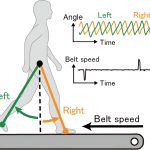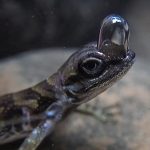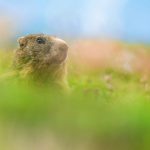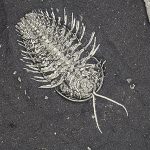How the brain helps us walk
It only steps in when things go wrong, study finds.
Walking is something most of us do without much thought.
It seems easy to walk and...
How tiny phytoplankton are thriving as the seas warm
A new study has revealed that an "invisible forest" of tiny organisms called phytoplankton is thriving in certain parts of our warming oceans.
Phytoplankton are...
Amazing ‘scuba-diving’ lizards use air bubbles to breathe underwater and escape predators
In a fascinating discovery, scientists have found that a species of small, semi-aquatic lizard from Costa Rica has developed a unique way to survive...
How a nearby supernova left its mark on Earth life
When a massive star explodes as a supernova, it does more than release an extraordinary amount of energy.
Supernovae explosions are responsible for creating some...
Scientists discover ancient life deep in Greenland’s bedrock
Scientists have found the first evidence that life existed deep within the bedrock of Greenland around 75 million years ago.
This discovery, published in the...
How early life challenges shape survival
New study reveals secrets of marmot longevity.
Just like humans, animals that face hardships early in life can suffer long-lasting effects on their health and...
How dust from the Sahara powers ocean life thousands of miles away
A surprising discovery shows that dust blown from the Sahara Desert plays a crucial role in supporting ocean life thousands of kilometers away.
This dust...
Scientists store human genome on ‘forever’ crystal
Scientists at the University of Southampton have achieved a remarkable breakthrough by storing the entire human genome on a revolutionary 5D memory crystal.
This new...
Ancient sea cow caught between two predators: crocodile and shark
Scientists recently made an exciting discovery about how a prehistoric sea cow became prey for two different predators—a crocodile and a shark.
This event happened...
Scientists discover extra set of legs in ancient trilobite fossils from New York
A recent study has revealed a surprising discovery about a species of trilobite, an ancient sea creature, found in upstate New York.
Researchers from the...










